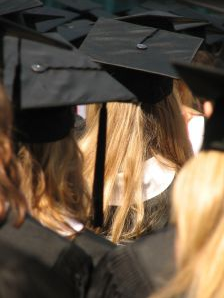The Russian government has recently started a scheme to encourage its highest achieving students to continue their academic careers abroad. The catch? After completing their studies the participants of the scheme must return to Russia to work for at least 3 years, or face mammoth fines.
The government has allocated 4.5 billion rubles from its budget for the program, and it is estimated that 1,000 students each year will be awarded the grant over the next three years. Eligible graduates will be those looking to study courses in technology, medicine and other scientific fields at some of the world’s most prestigious institutions. Those wanting to benefit from the grant will have to apply to their institution of choice and only upon being accepted will they be able to apply for the funding.
The conditions of Russia’s new program are understandable, and necessary, if they wish to see a return from the investment they are making. Highly qualified graduates would undeniably bring expertise otherwise lacking in Russia, along with a more global perspective to the next generation of professionals.
Another industry that the Russian government is keen to focus on is education. Enabling its students to study abroad with a view to having internationally trained lecturers in the country’s own institutions, will therefore improve and modernise the current higher education system.
The long term attitude taken by Russia is arguably a reaction to the trend seen in other countries with high numbers of students studying abroad. China and India have long had the highest number of students opting to go to university overseas but they are consistently seeing the number of their brightest graduates choosing not to return home after graduating increase.
Ironically it is China and India’s engineering and technology graduates especially that are staying abroad to start their careers, exactly what Russia hopes to avoid.
In China, however, the students opting to return home are in fact the ones to benefit from the demand their country has for their skills and overseas experience, arguably a pattern that Russia is hoping to replicate. It is proposed that further investment will have to be made by the government in the science and education sectors in order to ensure that the graduates have a reason to return and give something back to their country.
